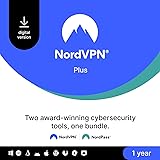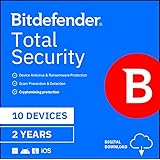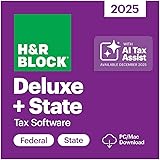Time management is a crucial skill that can make a world of difference in your daily routine. It’s not just about being busy; it’s about using your time effectively to accomplish more and achieve greater success in all aspects of your life. Whether you’re looking for productivity tips, time management skills, or time management techniques, this article will provide you with the insights you need to stop clocking in and start thriving.
Key Takeaways
- Effective time management is essential for boosting productivity and reducing stress.
- Understanding how you spend your time is the first step to improving time management.
- Setting priorities, using time tracking tools, and setting specific goals can help you manage your time effectively.
- Avoiding multitasking and focusing on one task at a time can maximize productivity.
- By implementing effective time management strategies, you can create a better work-life balance and achieve your goals.
The Importance of Time Management

Effective time management is crucial for maximizing productivity, achieving goals, and maintaining a healthy work-life balance. By implementing time management strategies and techniques, you can optimize your use of time and reap a multitude of benefits.
- Accomplish more tasks: Time management allows you to prioritize and efficiently allocate your time to important tasks. This enables you to tackle a greater number of tasks and complete them with increased efficiency.
- Increased productivity: When you manage your time effectively, you can eliminate distractions, focus on the task at hand, and maintain a consistent workflow. As a result, you can accomplish more in less time, leading to increased productivity and output.
- Reduced stress: By planning and organizing your time, you can eliminate last-minute rushes, missed deadlines, and the feeling of being overwhelmed. This reduces stress levels and promotes a calmer, more composed mindset.
- More energy: When you have effective time management practices in place, you can allocate time for breaks, relaxation, and rejuvenation. This ensures that you have the energy and motivation to tackle your tasks with enthusiasm and efficiency.
- Improved work-life balance: Effective time management allows you to allocate time for work, personal commitments, and leisure activities. This helps create a healthy work-life balance, preventing burnout and promoting overall well-being.
- Enhanced self-esteem: Achieving goals and meeting deadlines through effective time management boosts your self-confidence and self-esteem. Accomplishing tasks in a timely manner showcases your capabilities and reinforces a sense of achievement.
Time management is not just about being busy; it is about making intentional choices and prioritizing tasks based on their importance and urgency. By developing effective time management skills, you can optimize your time, increase your productivity, and create a more fulfilling and balanced life.
“Time is a created thing. To say ‘I don’t have time’ is like saying, ‘I don’t want to.'” – Lao Tzu

Strategies for Effective Time Management
Improving your time management skills is essential for maximizing productivity and achieving your goals. Here are some effective strategies and tactics to help you better manage your time:
1. Keep a Time Log
Knowing how you spend your time is the first step towards effective time management. Keep a time log to track your activities throughout the day. Evaluate the results to identify time-consuming tasks and areas where you can make adjustments. This insight will help you prioritize tasks and allocate your time more efficiently.
2. Set Priorities
Prioritization is key to effective time management. Distinguish between what is important and urgent, and focus on the most crucial tasks. Use prioritization techniques like the
When it comes to time management, one of the most important things you can do is to set priorities. This means taking a look at your tasks and determining which ones require immediate attention and which can be tackled later.
There are a few different ways to set priorities. One popular technique is the Eisenhower Matrix. This method involves sorting your tasks into four different categories:
– Urgent and important
– Important, but not urgent
– Urgent, but not important
– Not urgent and not important
Tasks that are both urgent and important should be given top priority. These are the tasks that you need to take care of right away.
Tasks that are important, but not urgent, can be given second priority. These are tasks that are important, but can wait.
Tasks that are urgent, but not important, should be given third priority. These are tasks that you need to take care of, but they’re not as important as the other two categories.
Finally, tasks that are neither urgent nor important can be given fourth priority. These are tasks that you don’t need to take care of right away and aren’t particularly important.
Another popular technique for setting priorities is the ABC method. This method involves rating your tasks on a scale from A to C, with A being the most important and C being the least important.
Once you’ve rated your tasks, you can then prioritize them accordingly. Tasks that are rated A should be given top priority, followed by tasks that are rated B, and then tasks that are rated C.
Whichever method you choose, setting priorities is a crucial part of time management. By taking the time to determine which tasks are most important, you’ll be able to stay focused on what matters most and get more done in less time.
Eisenhower Matrix or the ABC method to determine which tasks require immediate attention and which can be tackled later. This will help you stay focused on what matters most.
3. Utilize Planning Tools
Take advantage of time-tracking tools, time-management apps, and planning tools to schedule and organize your tasks effectively. These tools can help you create to-do lists, set reminders, and visualize your daily, weekly, or monthly agenda. Some popular time management apps include Trello, Todoist, and Asana.
4. Get Organized
An organized workspace and digital environment can greatly enhance your time management. Keep your physical and digital spaces clutter-free and create a system for storing and organizing your files and documents. This will save you time and make it easier to locate important information when you need it.
5. Delegate Tasks
Don’t be afraid to delegate tasks when possible. Identify tasks that can be outsourced or assigned to others and free up your time for more important responsibilities. Delegating not only helps you manage your workload but also allows others to develop their skills and contribute to the team.
6. Avoid Procrastination
Procrastination can sabotage your time management efforts. Identify the reasons behind your procrastination tendencies and implement strategies to overcome them. Break tasks into smaller, manageable steps, set deadlines for yourself and use techniques like the Pomodoro Technique to stay focused and minimize distractions.

By incorporating these strategies into your daily routine, you can enhance your time management skills and accomplish more in less time.
| Strategy | Description |
|---|---|
| Keep a Time Log | Track your activities to identify time-consuming tasks and prioritize accordingly. |
| Set Priorities | Distinguish between important and urgent tasks to focus on what matters most. |
| Utilize Planning Tools | Maximize your productivity with time-tracking tools and time-management apps. |
| Get Organized | Create an organized workspace and digital environment for efficient time management. |
| Delegate Tasks | Outsource or assign tasks to others to free up your time for more important responsibilities. |
| Avoid Procrastination | Implement strategies to overcome procrastination and stay focused on your tasks. |
Tips for Strengthening Time Management Skills
Strengthening your time management skills requires developing awareness, arrangement, and adaptation. By honing these essential skills, you can effectively manage your time, prioritize tasks, and maximize productivity.
Become Aware of Time’s Value
Understanding the value of time is the foundation of effective time management. Reflect on how you currently perceive and value time. Recognize its limited nature and the importance of allocating it wisely. When you truly grasp the significance of time, you can make conscious choices and prioritize tasks based on their importance and urgency.
Arrange Tasks and Set Specific Goals
Organizing tasks and setting specific goals is key to efficient time management. Prioritize your tasks by identifying the most important and urgent ones. Assigning specific goals to each task helps maintain focus and progress. Having a clear roadmap allows you to navigate your daily responsibilities and avoid feeling overwhelmed.
Conduct a Time Audit
Performing a time audit allows you to evaluate how you currently spend your time. Keep a log of your activities and assess which ones are time-consuming or unnecessary. Identify areas where you can make improvements or eliminate time-wasting habits. A time audit provides valuable insights and helps you gain a deeper understanding of your time management habits.
Develop Good Habits and Reflect Regularly
To strengthen your time management skills, cultivate positive habits and regularly self-reflect. Establish a routine that supports efficient time management, such as prioritizing tasks in the morning or setting aside dedicated time for important projects. Reflect on your progress regularly and make adjustments as needed. Self-awareness and self-reflection are invaluable for adapting and fine-tuning your approach to time management.
Avoid Multitasking and Focus on One Task at a Time
While multitasking may seem like a way to accomplish more in less time, it often leads to decreased productivity and increased stress. Instead, focus on one task at a time. Dedicate your attention and energy to completing each task before moving on to the next. This approach allows for better concentration, efficiency, and quality of work.
By implementing these time management techniques and skills, you can optimize your productivity and achieve greater success in all areas of your life.
Now you know why Time Management is a powerful tool that can lead to real-life success. By implementing effective time management strategies and techniques, you can make the most of your limited time and achieve your goals. Prioritizing tasks based on importance and setting specific goals are crucial steps in managing your time effectively.
Eliminating time-wasting activities and staying focused on your priorities will create a better work-life balance, increase productivity, and reduce stress. Remember that effective time management is about making intentional choices and allocating your time wisely.
Embrace the power of time management to transform your daily routine and thrive in all aspects of your life. By managing your time effectively, you can achieve greater success in your career, build stronger relationships, pursue your passions, and take care of your well-being. Start implementing these time management techniques today and experience the positive impact they can have on your life.











